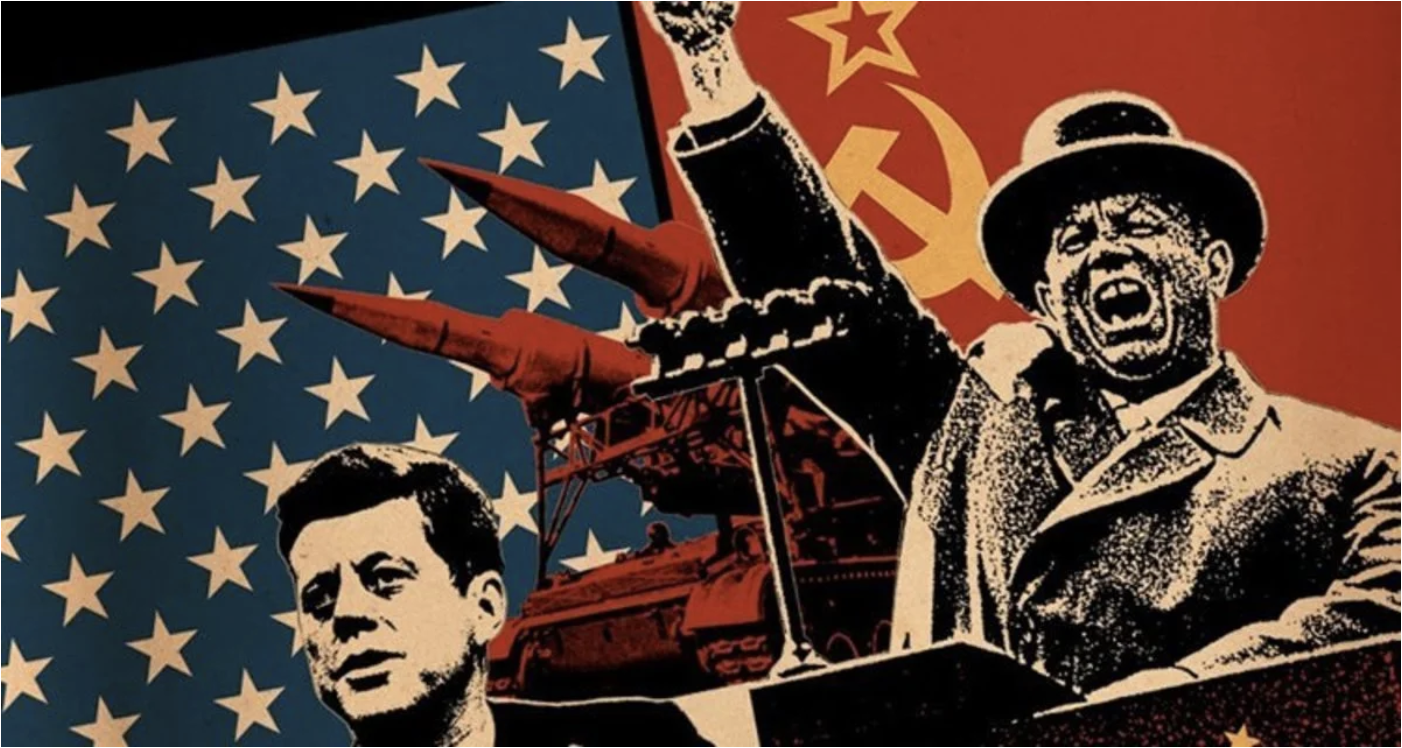COLD WAR HISTORY: WHO STARTED IT?
WHO WAS TO BLAME FOR THE 1945-1991 COLD WAR? COULD IT HAVE BEEN AVOIDED?
Both sides engaged in the deceits and provocations that fueled the Cold War. However, when examining the root causes, more blame should be placed on the USSR for initiating actions that often led to US overreactions. While tensions were inevitable between Soviet communism and democratic capitalism, the Cold War could have been avoided had it not been for the deep seeds of doubt sown by the USSR at the end of WWI, the beginning of WWII, and Korea.
The Cold War was a competition of ideologies, with each side viewing the other as an existential threat. The struggle first emerged at the end of WWI, when President Woodrow Wilson maintained that free-market democracies made the world safer, while the incipient Bolsheviks vowed to free the proletariat from imperialist-capitalist forces.
However, the Bolsheviks were first to transform ideological differences into direct provocation. Lenin was forthright in his writings that a small cadre of activists was necessary to accelerate Marxist revolution, openly threatening capitalist democracies. He operationalized this philosophy by colluding with the Germans to knock Russia out of the WWI alliance. At the first Congress of Soviets, the Bolsheviks signed an armistice with the Central Powers that stunned the Wilson administration by blaming the allies for the war.[1] It stands to reason that a new regime spurning the West and openly espousing the overthrow of Wilsonian capitalism would be perceived as an existential threat.
The Western escalatory reaction was to refuse Bolshevik diplomatic recognition and intervene in the Russian civil war, setting up what would become a long-running narrative of Bolshevik victimhood. The West arguably overreacted to Bolshevik rhetoric and violated Wilson’s principles of self-determination. Nevertheless, the Allies soon offered Lenin recognition and peace with the Prinkipo invitation in 1919. But Lenin was “not prepared to abandon his revolutionary agenda to achieve peace with the allies.”[2] Instead, the Bolsheviks chose confrontation over a more limited agenda within Russian borders.
Only one day after receiving the Prinkipo proposal, Lenin established the Comintern, creating a mechanism to fulfill the promised global revolution against the West. Bolshevik action backed the rhetoric when communists in America distributed 5 million copies of the “letter to the American worker.” The American polity interpreted this as an existential threat to democratic capitalism, leading to the overreaction of “the Red Scare” in 1919.
The Soviets initiated further mistrust before World War II when in 1939—reprising their WWI behavior—they negotiated a separate peace with Germany and invaded Poland themselves. It wasn’t until Hitler invaded the USSR that Stalin sought a Western alliance. While this was a symbiotic relationship—the West benefited from an eastern front—the US provided the USSR with lend-lease supplies as a Soviet lifeline. In other words, from 1939 to 1945, the Soviets betrayed the West by allying with Hitler and invading Poland and then, later, asked for Western help. This, too, set the stage for the West to view the USSR as an unreliable partner.
In the early years of the Cold War, Korea marked a significant escalation, again precipitated by a Soviet betrayal. The Allies had requested Stalin to join the war against Japan in good faith, which, like the partition of Germany, led to a divided Korean Peninsula after Axis occupation. Kim Il Sung, a Soviet acolyte, replaced Soviet occupying forces above the 38th parallel. In March 1949, Kim returned to Moscow seeking permission to invade the South ahead of promised national elections. Stalin granted it.[3] The ensuing Korean conflict escalated to direct combat between Great Power communists (Chinese infantry, Russian pilots) and American-led allies.
If not for these foundational Soviet betrayals, evidence suggests the Cold War could have been averted. First, WWII demonstrated a basic level of cooperation between two incompatible systems. Second, with de-Stalinization, both Malenkov and Khrushchev aimed to realize the promised benefits of communism while downplaying global revolution. Khrushchev advocated coexistence with the West and repudiated Stalinism in his “secret speech.” Meanwhile, Eisenhower challenged the American “military-industrial complex” and offered conciliatory gestures, such as his “open-skies” treaty. If the seeds of mistrust had not been sown so deeply by historical Soviet treachery, perhaps these leaders would have been more successful combating aggressive domestic politics that escalated the conflict.
[1] Ronald E. Powaski, The Cold War: The United States and the Soviet Union, 1917 - 1991 (New York, NY: Oxford University Press, 1998).
[2] Powaski.
[3] “The Cold War,” Korea (4:48, n.d.).

